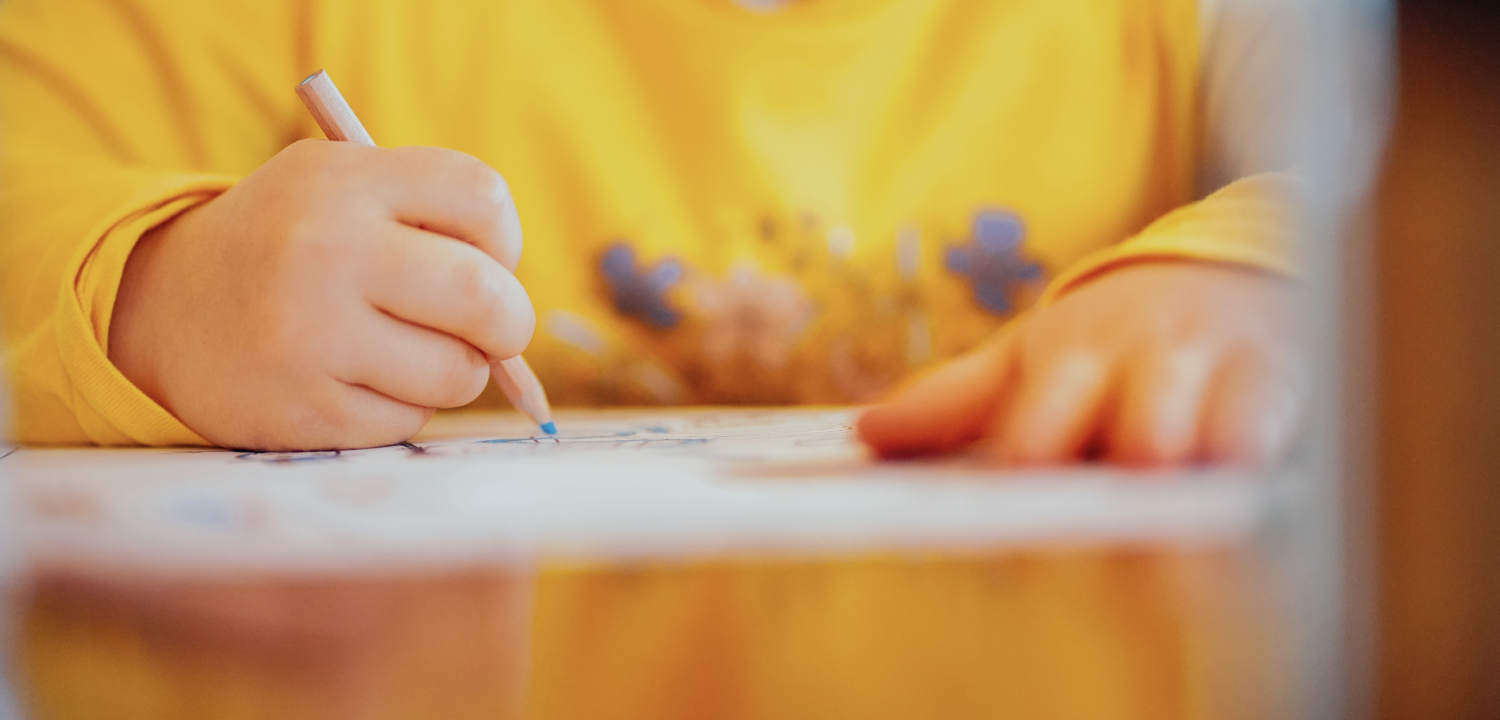Taking Time to Grow Series: Writing Letters to Loved Ones
Featuring special guest blogger: Stefany Cunningham, B.S. (Areas of study include kinesiology, early childhood development & education, and psychology)
During this difficult and isolating time, writing letters to loved ones will foster your child’s knowledge of several literacy components, as well as foster social-emotional health among everyone involved (your children, the recipients, and you!). Right now, in the eyes of young children, the world can be a confusing place as new social restrictions are being put into place and our everyday lives are jostled. Children at this time have less power to initiate social connections with people who live outside of their homes than ever before.

Writing letters can serve as a healthy outlet for young children to remain in contact with those they are currently unable to see in person. In addition, it gives them the power to initiate a social connection that email is unable to provide (children can’t hop onto their own email accounts whenever they please, but they certainly can find a writing utensil and a piece of paper!). Your children will love to write letters to people they are missing dearly: grandparents, aunts and uncles, cousins, friends, and teachers.
There are a couple different ways families can go about this activity depending on the age of their children and how much experience the child has with writing.
If your child has experience and interest in writing letters and words, they may wish to write the letter themselves (with a little help from their adults, of course!). Children with writing experience may need an adult to spell out words for them or have an adult write out words on a seperate sheet of paper for them to copy down in their letter.

Remember: Your child is learning and growing. The best way to support literacy skills at this age is to show them that reading and writing is enjoyable. Their letter forms do not have to be perfect, as it’s about the process not the product. Your children will have plenty of time to learn how to properly dot their I’s and cross their Ts as they grow older.
If your child has not explored writing letters or words yet, they can still be heavily involved in the writing process by dictating to their adults what they want the letter to say. Or, if your child wants to “write the letter themselves” by scribbling all over the paper, this is an early attempt at writing and this is valuable too!
Either process will help children build literacy skills in meaningful ways. Children will have the opportunity to express their thoughts and emotions in writing fostering a deep, meaningful connection with literacy (and receiving a letter in return is a bonus, meaningful literacy experience!). When children experience a meaningful connection with literacy, they are exploring the following literacy concepts:

- Knowledge of Print: When writing letters to loved ones, your children will explore the concept that verbal language can be documented and read aloud, and that print carries a message (more importantly, their message! How powerful they will feel expressing their thoughts and emotions on paper!). Additionally, children will gain a better understanding that print must follow certain arrangements. For example, English is written from left to right; starting at the top of the page and moving downward (Dodge, Colker, & Heroman, 2009).
- Letters and Words: When your children write letters to loved ones, they are learning letter and word identification. In addition, they are also learning how we use letters and words to communicate with others. Authors Diane Trister Dodge, Laura J. Colker, and Cate Heroman (2009) explained, “Really knowing letters involves understanding that a letter is a symbol representing one or more of the sounds in the English language; that these symbols can be grouped together to form words; and that these words have meaning” (p. 129). What better way for children to explore how to use letters and words for communicating than to connect with those they care about through print?

- Literacy as a Source of Enjoyment: Motivation is a key feature in literacy development. Why do people read and write? Because we want to hear stories, gather information, or we want to communicate our own stories and information. Communicating your own thoughts and emotions, or reading the thoughts and emotions of someone you truly care for is far more motivating than copying or reading letters on a worksheet (Dodge, Colker, & Heroman, 2009).
We hope your family enjoys this opportunity to foster a love of literacy while simultaneously enriching your family’s social-emotional health! Please subscribe to Pine Nuts: Musings on Early and Higher Learning and join Aspen Academy on social media (Facebook and Instagram) for more activity ideas!
References
Dodge, D. T., Colker, L. J., & Heroman, C. (2002). The creative curriculum for preschool (4th ed.). Teaching Strategies.




